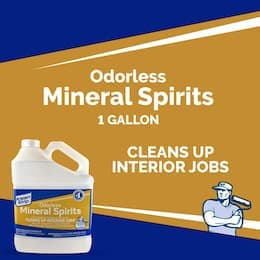
-----
Citrus effects on wastewater treatment systems
2004
I'm a chemist in the aluminum anodizing industry. We are currently trying to replace methyl ethyl ketone, using citrus based solvents and cleaners.
I know that we can not dispose of the solvents in the wastewater, but I don't know about the water based citrus cleaner? I don't know the effects the citrus would have on the wastewater pH meters. I've heard stories about the damage they cause to pH equipment, but have not found any credible information on the subject.
Can anyone point me to any articles on the effects of citrus cleaner on the waste treatment applications?
Melvin L. PollardAluminum Anodizing Job Shop - Baltimore, Maryland, United States
citric acid ⇦ on eBay or Amazon [affil link] is effective for a number of things because it is a good metal chelator. I don't think it's a question of it damaging pH meters, but of it tying up metals so they are difficult to remove from your wastewater.
So I think the first step is jar testing. Mix some of the proposed cleaner with your existing effluent and see what happens differently, if anything, when you try to precipitate and settle the metal.

Ted Mooney, P.E.
Striving to live Aloha
finishing.com - Pine Beach, New Jersey
Ted can be retained for immediate
answers or long term project help
2004
Melvin,
Citric cleaners will quite probably wreck havoc on your waste water treatment system. My experience was not pleasant. They work great as cleaners but the properties that make them good cleaners are diametrically opposed to what you want to do in a waste treatment unit (if regulated metal removal is the goal). Not only will the citrates sequester metals (as Mr. Mooney mentions) but the emulsifier/surfactant package is very efficient at dispersing small particles (read this as NO FLOC -- drastically increased settling times). If you can segregate the waste and treat it by tying up the chelate with something non-regulated (aluminum sulphate or lime worked with moderate success) you might have more luck than I did. I didn't have a good way to segregate the waste and eventually changed to something a little more friendly on my system.

Trent Kaufman
electroplater - Galva, Illinois
2004
Following up on both Ted's and Trent's reply - you can use a strong metal chelate breaker on these streams, however the sequestering power of these are usually strong enough as to reduce the ability to flocculate and settle without significant retention. The best way to remove these, then, is by applying positive barrier technology, such as microfiltration, as a replacement to the clarifier. I doubt it's cost effective to look at capital equipment requirements of this size just for a replacement chemistry change, but you do have alternate benefits to the application of the technology, such as metals levels in the low single digit ppb range for discharge, possibility of water recycling with a 0.2 you filtered solution that is excellent for RO or other recycle system feeds, depending on the TDS.

Tom Baker
wastewater treatment specialist - Warminster, Pennsylvania
2004
2004
Are you talking of citrus solvents such as D-Limonene (a hydrocarbon) or citric acid style cleaners? If you are replacing MEK / methyl ethyl ketone, I have a feeling you are talking about the citrus solvent D-limonene ⇦ on eBay or Amazon [affil link] .
Would D-Limonene have any different effect on a waste treatment system than any other solvent such as mineral spirits or a non-chlorinated aromatic hydrocarbon?
Todd Turner- Monroe, Louisiana
Q, A, or Comment on THIS thread -or- Start a NEW Thread
